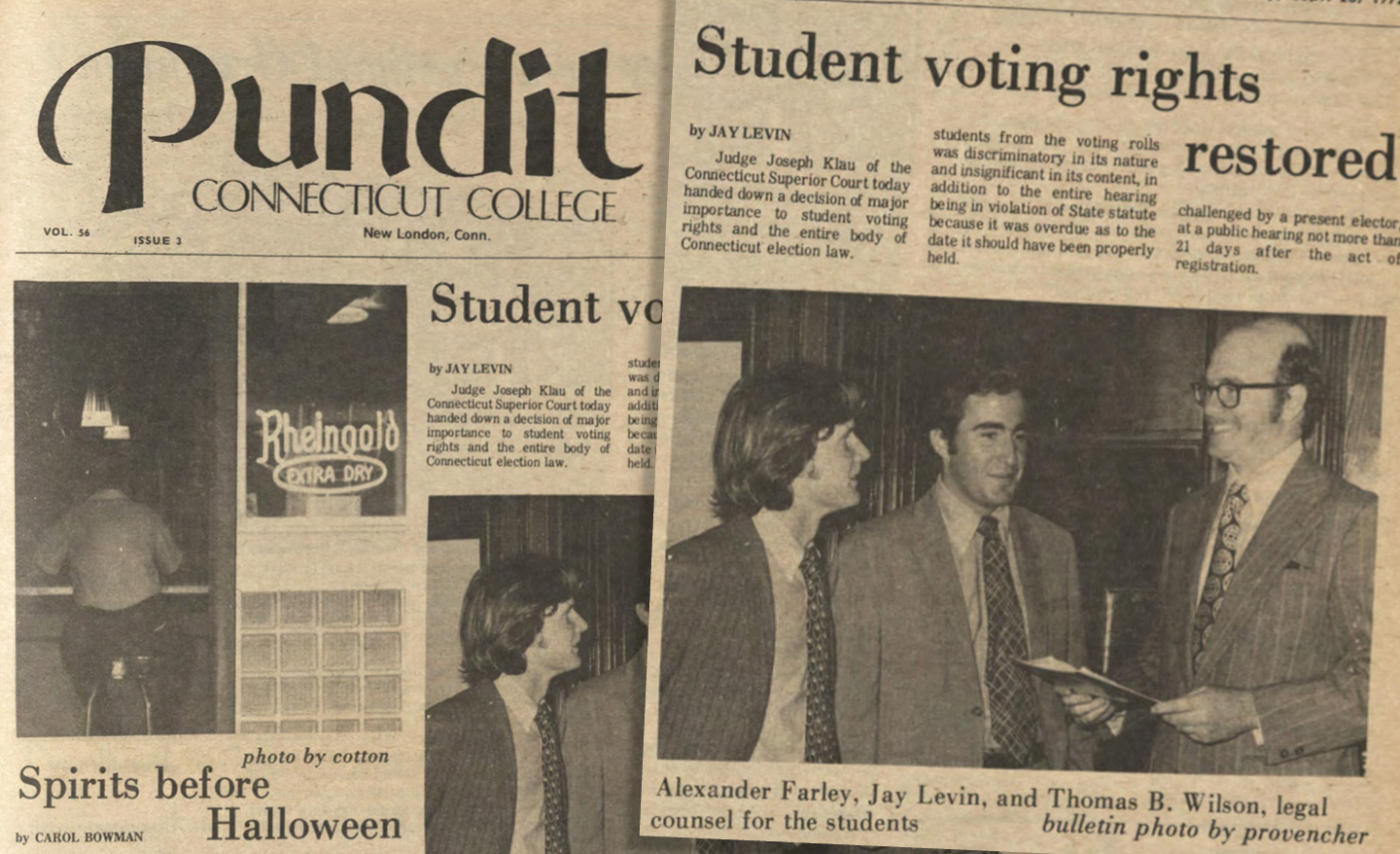The Right to Vote
In 1972, 146 Conn students filed a class-action lawsuit and won the right to vote in New London.
In July of 1971, right before I was to begin my freshman year at Connecticut College, the United States ratified the 26th Amendment, which lowered the national voting age from 21 to 18. In March of 1972, I proudly registered to vote as a student residing at Conn. My parents had moved to New York; Connecticut—where my life was now centered—was my home.
But, just a few days later, I received a letter from the New London Board of Registrars rescinding my right to vote in Connecticut. The reason given: “You are a student, not a resident.” I felt angry, powerless and dejected.
The next day, I happened to have a meeting with New London lawyer Thomas B. Wilson, Esq. Not about voting rights, but about securing an FM radio license for Conn’s radio station, WCNI. I was the president of the radio club, and Wilson had agreed—at the request of Conn’s administration—to help us pro-bono with the FCC licensing process.
I was still feeling quite dejected, and Wilson caught on. He asked what was wrong, and I handed him my rejection letter. Tom grinned (not the reaction I was expecting) and matter-of-factly announced, “We’ll take them to court!”
We did, but we lost quickly and unceremoniously in an administrative hearing. When Tom asked me how I wanted to proceed, I raised my hands in a clueless gesture. Tom, however, matter-of-factly announced, “We’ll appeal it!”
With the help of Jay Levin ’73, we decided to make the appeal a class-action lawsuit, and 145 of my fellow Conn students joined me in amplifying the message: “We are residents of Connecticut, residing at Connecticut College, and we want to vote in Connecticut.” The Connecticut Superior Court agreed to hear our case in the Norwich courthouse on September 26, 1972, with the Honorable Joseph E. Klau presiding.
In court for the first time, I nervously took the witness stand. Judge Klau leaned over from his bench and asked, “Where do you live, young man?” Despite Tom’s coaching, I stammered, “Box 501, Connecticut College, New London, your honor.” Sliding his glasses down his nose, the judge asked incredulously, “You mean to tell me, young man, you live in a post office box?” Amid courtroom chuckles, I quickly revised my testimony, “Room 113, Larrabee Dorm, Connecticut College, your honor!” Judge Klau smiled and said, “Thank you, young man; that will be all.”
The court ruled in our favor that day—we won! Judge Klau expedited the ruling’s issuance so all 146 of us could vote in the upcoming November general elections. Our ruling applied to all similarly situated out-of-state college students aged 18 and older across the country, opening the door to expanded voting rights nationwide and serving as precedence for Symm v. United States (1979), in which the U.S. Supreme Court ruled that the denial of residency rights for college students was unconstitutional.
It’s been nearly 53 years since that historic ruling for Connecticut College, and since then generations of Conn students have voted in New London. Today’s students are facing different challenges to their constitutional rights. I met with a group of them taking “Civil Rights and Civil Liberties” with Associate Professor of Government Daniel Moak in April. They were impressive and passionate, and a great reminder of the true value of the liberal arts. I have no doubt that they’ll carry Conn’s legacy of activism forward.
